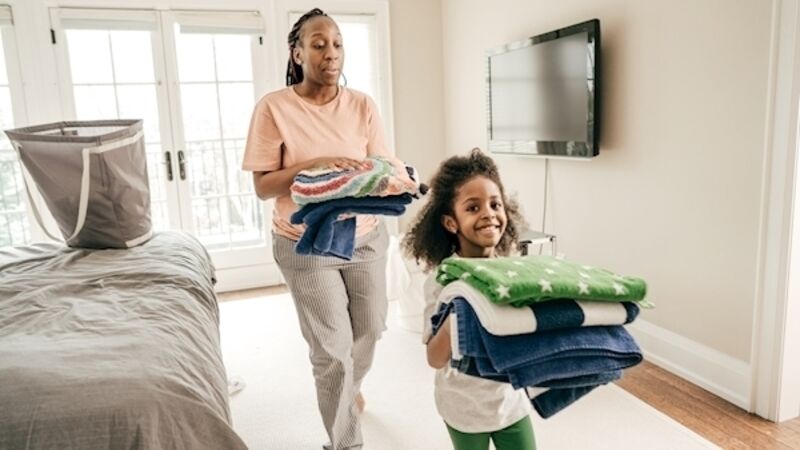Advice: How not to fold on children's chores

Getting your children into the habit of doing household chores benefits them as much as you, writes .
I hear parents talk all the time about how their children don’t help enough around the house and how this can be a source of conflict. I hear parents talk about how their teenagers would burn toast and the fact that they worry about how their children will cope when they go to college/move out of home.











